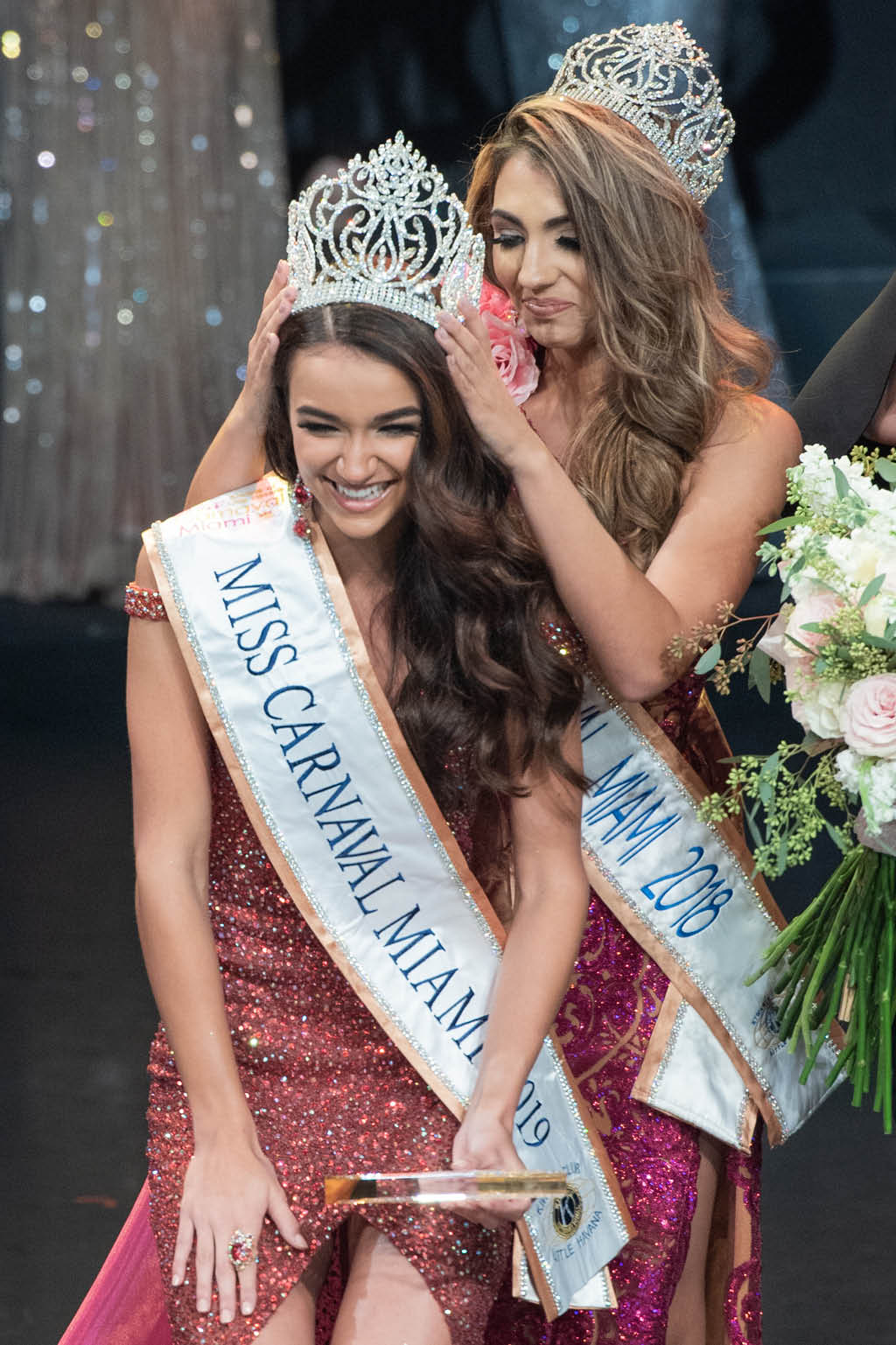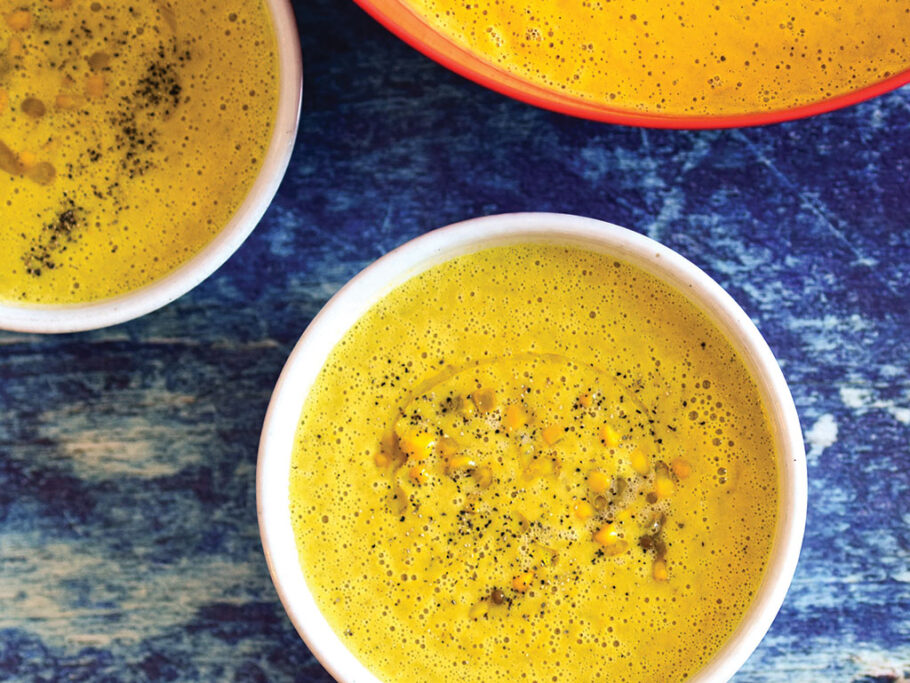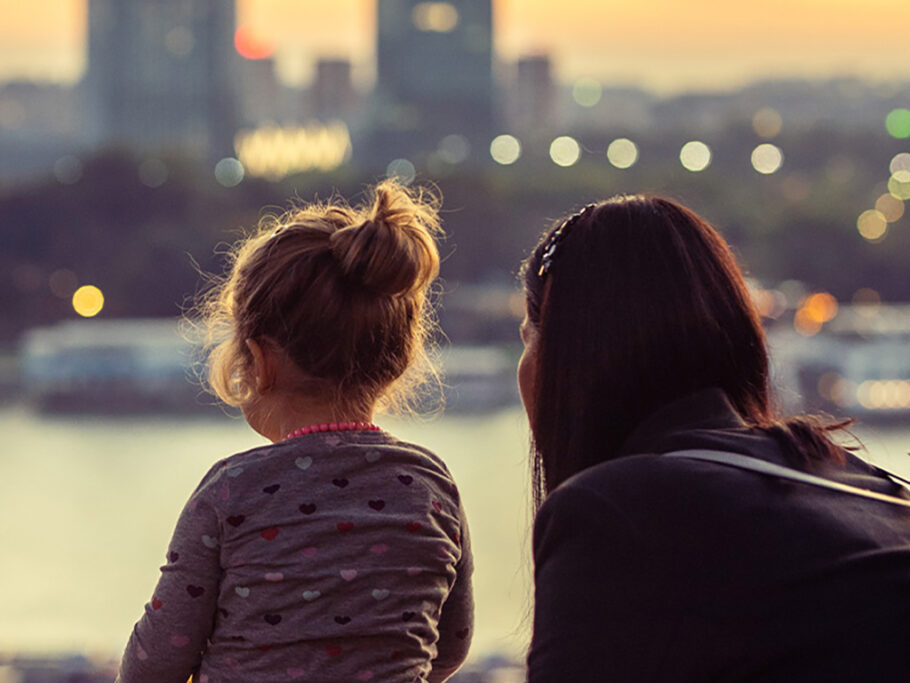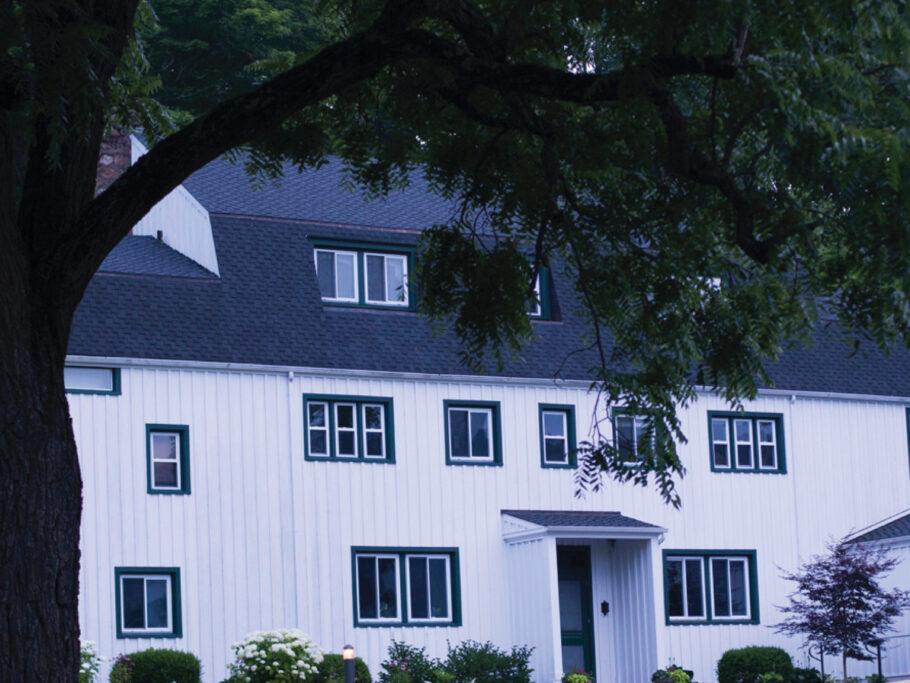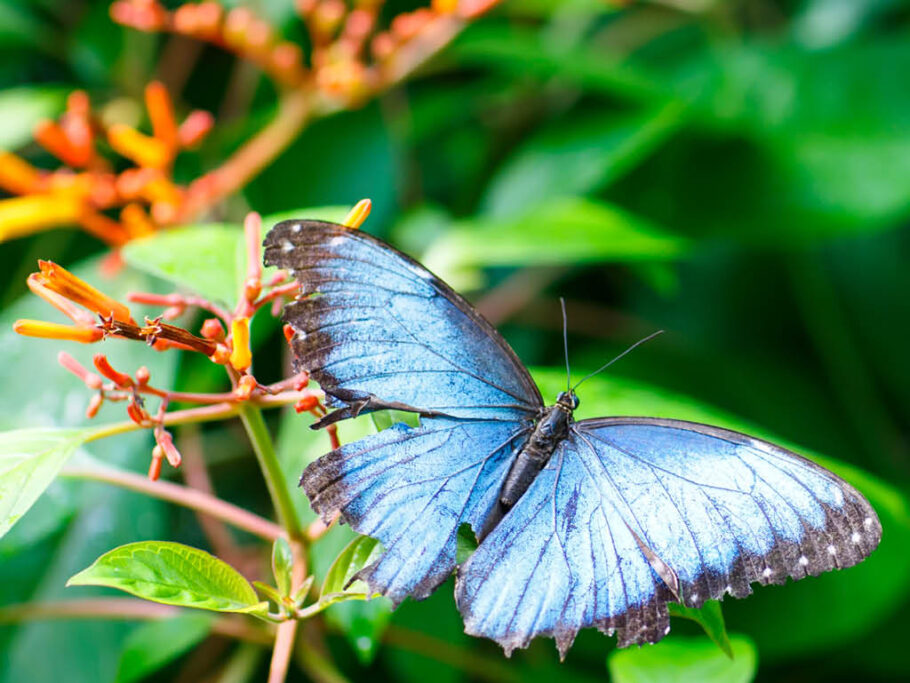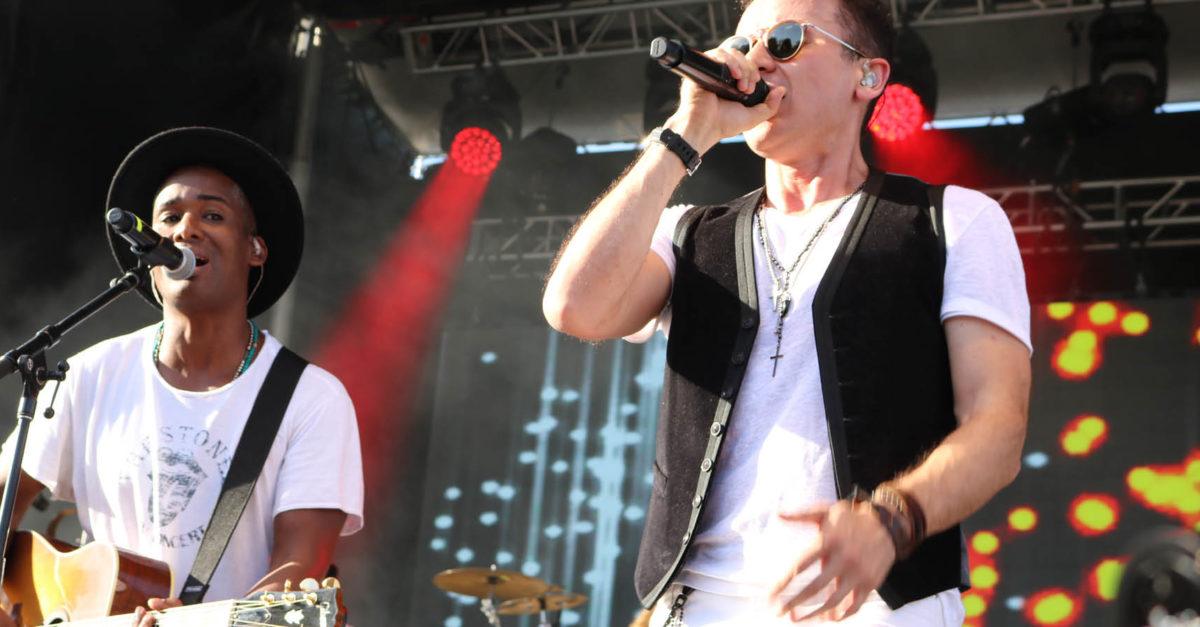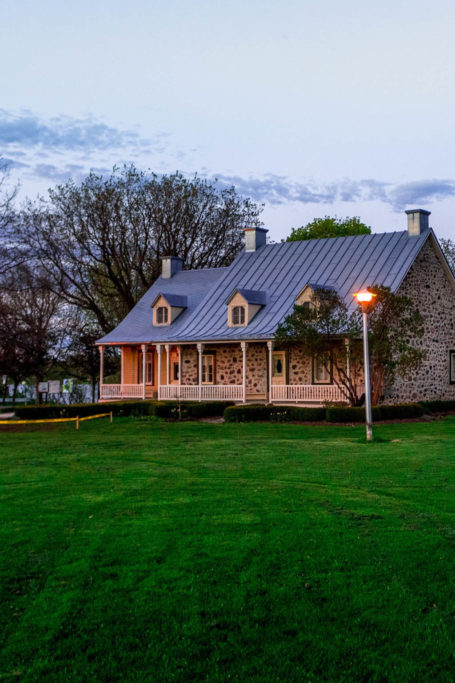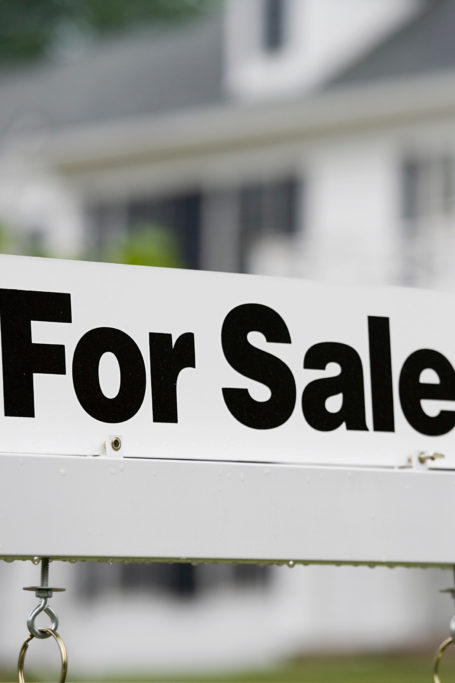A Party With A Purpose
Everybody’s familiar with Mardi Gras—it’s America’s biggest party, after all, where over a million people descend on New Orleans every year to celebrate. But around the same time, some eight hundred fifty miles southeast, another large, prominent, one-of-a-kind celebration has been taking place for decades.
Carnaval Miami, held primarily in February and March in Little Havana but with events extending into May, averages about a million visitors each year. People flock here from all over the globe to celebrate Hispanic heritage with good times, good food, and good music—all for a good cause.
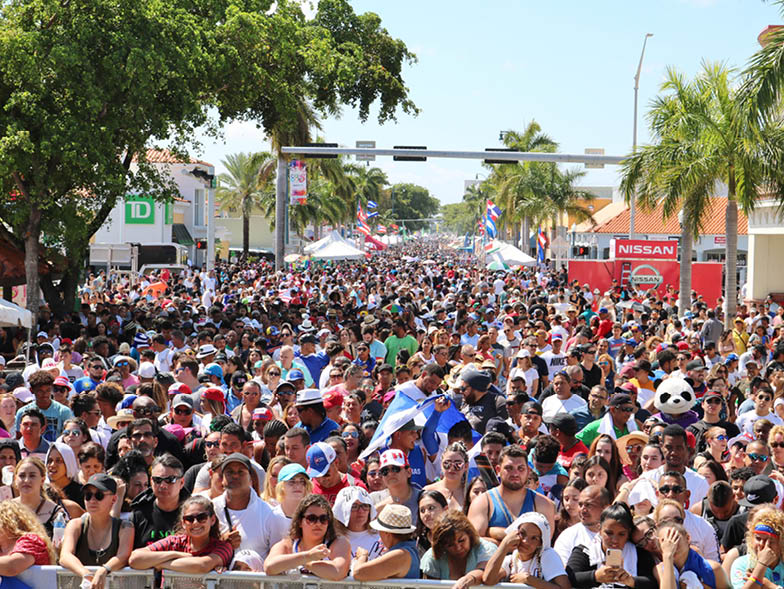
Making History in Little Havana
It all began humbly back in 1975, when a group of friends decided they wanted to showcase Miami’s then underrepresented Cuban heritage and culture in South Florida and founded the Kiwanis Club of Little Havana.
“It basically started as an open house to feature Cuban food and music,” says Jesus Lebeña, the club’s current president. “But it quickly grew over the years, and—as Miami became more diversified as a community—it started evolving to celebrate all Hispanic cultures, including those from Central America, South America, and other parts of the world. That really represents what Miami is.”
Today, Carnaval Miami is the largest Hispanic festival in the country. Sure, Miami’s warm weather brings people in, but what draws people to Carnaval Miami is the sheer number of innovative events it offers. Among the must-sees, according to Lebeña, are Cork and Fork, a food-and-wine festival featuring over forty restaurants offering tastings, plus celebrity chef demos; Cordials and Candy, where you can sample amazing after-dinner drinks and sweets; and the arts-and-music festival Carnaval on the Mile. “People want to be part of an unforgettable experience, and that’s what we aim for,” says Lebeña. “It’s nonstop. And there’s an event for every type of person.”
Among the Carnaval Miami experiences is Miss Carnaval Miami, a pageant that is one of its first events held every year. In addition, there’s a dominoes tournament, a soccer tournament with over a hundred teams and thousands of participants, and, later in the spring, a golf tournament that has been taking place since 1982. The Kiwanis Club has also chosen a man or woman of Latino descent to be its official Carnaval Miami king or queen each year since Desi Arnaz was its inaugural king in 1982. Other past kings and queens include Pitbull, Gloria Estefan, Celia Cruz, Andy Garcia, and Maria Conchita Alonso. True to its commitment to Hispanic diversity, in 2019 the organization named the musician Fonseca as its first Colombian-born king. The 2020 kings are duo Mau y Ricky.
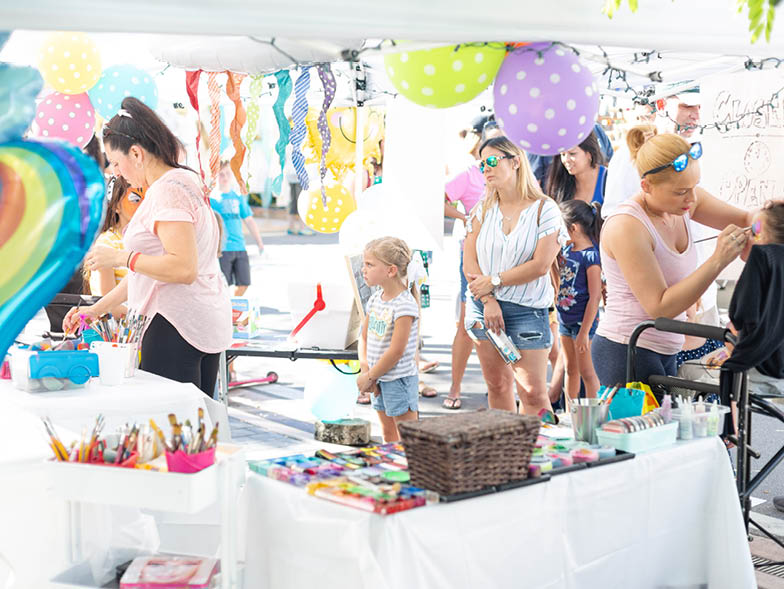
Center Stage: Calle Ocho
However, the biggest event of Carnaval Miami is also one of its oldest. The Calle Ocho Music Festival, a free event that first took place in 1977, is the largest Hispanic festival in the country and takes place along Eighth Street (Calle Ocho) from Twelfth Avenue to Twenty-Seventh Avenue. “Eighth Street is the heart of Little Havana,” Lebeña shares. “It really exemplifies Cuban culture and Cuban heritage—people from all over the US, as well as from Europe, Asia, and other parts of the world come here to get the whole flavor of Hispanic culture. There’s no place else we’d have Calle Ocho.”
This cornerstone event features over two hundred musicians. You’ll typically find fifteen to twenty stages set up along Eighth Street, with up to six bands performing at each throughout the day. “Nothing else in the country comes close,” Lebeña states.
Plus, there are plenty of other things to experience during Calle Ocho. Over four hundred vendors line the streets, with everything from art to food—all in an effort, Lebeña says, to continually reinvent the event to appeal to different types of crowds. He cites a new event in 2019 as an example: “Cubano Wars is a competition to crown the best Cuban sandwich around. Last year’s competition was very exciting and fun. People loved it—they were able to come in, taste different sandwiches, and vote.” Cubano Wars joined El Croquetazo, a croqueta-eating contest sponsored by Major League Eating (of Nathan’s Famous Hot Dog Eating Contest), as the featured food events at Calle Ocho. Participants from the hot dog-eating contest competed at El Croquetazo, including world champion Joey Chestnut—who won by consuming 185 croquetas in eight minutes, a world record. “We do nothing small,” Lebeña adds, with a laugh.
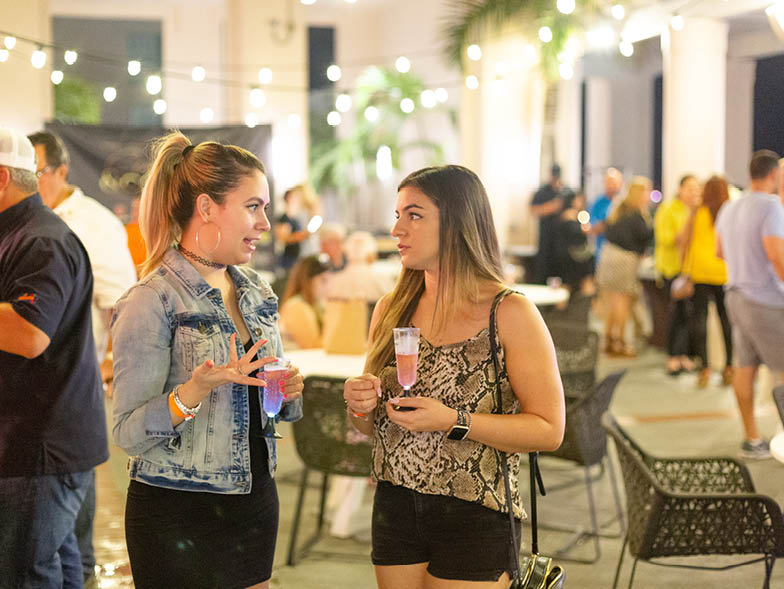
Community and Kids
Holding an event as massive as Carnaval Miami takes a great deal of planning and networking, for which Lebeña takes the lead. He and everyone else involved do so as volunteers, so planning and execution are key. “By April, we can breathe a little bit. But between May and the end of September, it’s very strategic: We start discussing and planning for how to make it even better. From October 1 onward, it’s all about execution,” he says.
Why do they put in so much time and effort? It’s all about the kids. “We try to incorporate children into all our Carnaval Miami events, and one in particular, the Book Nook—a new event in 2019—certainly did,” Lebeña states. “It’s a book fair for kids that promotes literacy among children in our community. We invited a bunch of authors to present their books, talk about them, and do book signings. It was a great success.”
In addition, proceeds from Carnaval Miami go to the Kiwanis of Little Havana Foundation, which has raised over $40 million for the community. Its biggest initiative is to enhance the lives of underprivileged families and children in Miami-Dade County, mostly through sports programs and educational programs. Among the donations include over 240,000 new toys being provided to day care centers and schools and over 200,000 supply-filled backpacks being given to kids for school.
However, what has perhaps impacted these communities the most is the Kiwanis Club’s scholarship program, which has provided over a thousand scholarships to local students to attend college. Lebeña says that residents who were awarded a scholarship often have gone on to graduate and have great careers, and many have come back
to share their testimony of how the Kiwanis Club—thanks to Carnaval Miami—impacted their lives.
The bottom line is that Carnaval Miami is both unforgettable and uniquely Miami—in its colors, its flavors, its fun, and its heart. “It’s just an experience,” Lebeña promises. “You’re going to witness the coming together of so many beautiful cultures, all celebrating, dancing, and eating. You’re going to enjoy live music. And you’re going to be supporting an organization that cares so much about giving back. You can’t go wrong with it. After it’s over, I want your feet to hurt because you enjoyed dancing so much, your stomach to be full because you ate so much great food, and, most importantly, to know that you were part of something that really makes a difference in this community.”
For more info, visit carnavalmiami.com
